Humane’s Ai Pin is a wearable personal assistant, powered by artificial intelligence
The launch of the Humane Ai Pin sees invisible computing and ubiquitous AI take a big step towards the mainstream
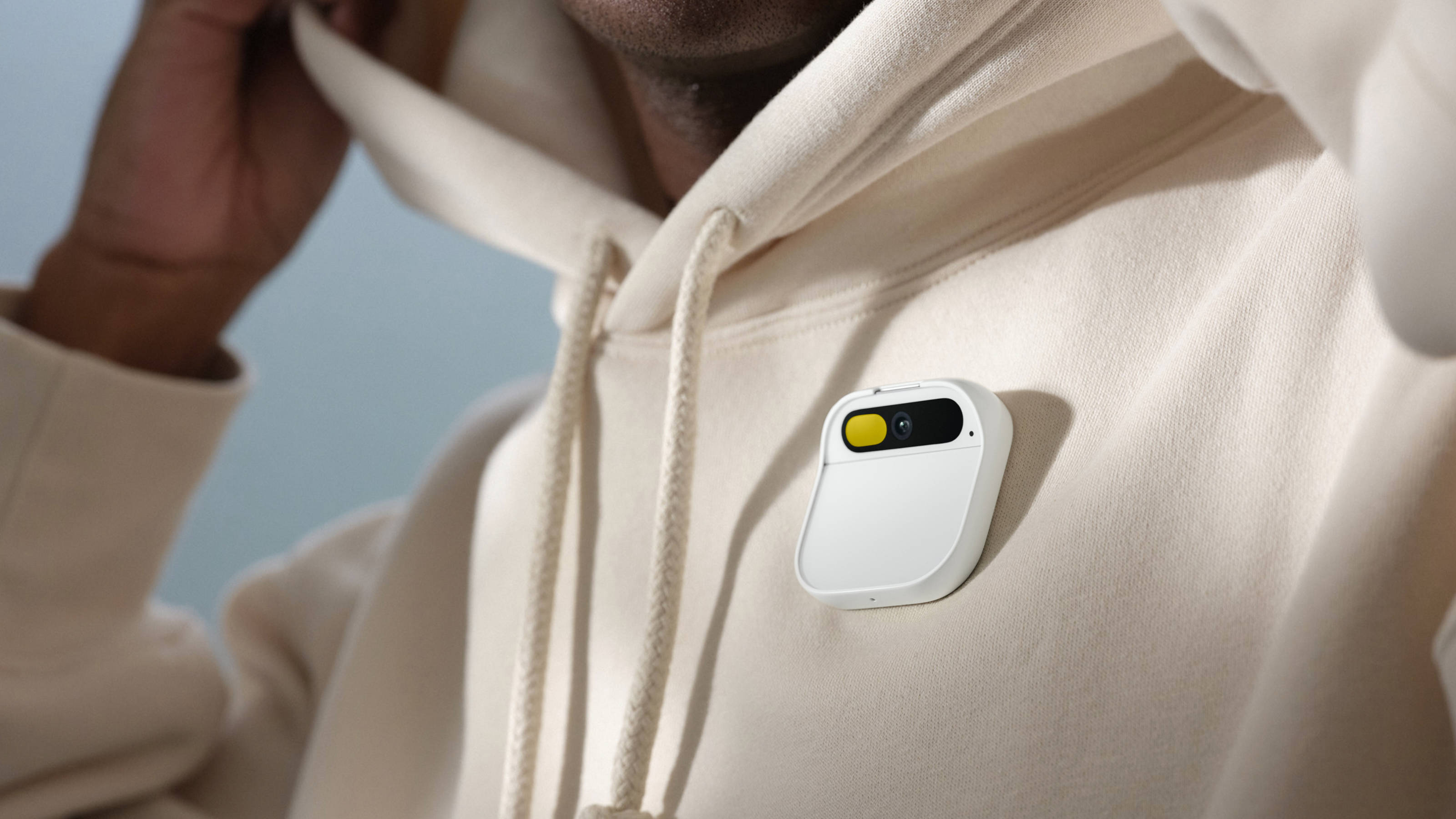
Humane wants the smartphone in your pocket to disappear. The start-up’s first production, the Ai Pin, is its first step on the road to a diaphanous blend of the real and the digital, a personal AI device that you wear and communicate with through speech and gesture. No screen, no buttons, no apps, no downloads. The public got a sneak preview of the device worn by models at Coperni’s S/S 2024 show in Paris on 29 September 2023, implying this kind of device will eventually become ubiquitous.
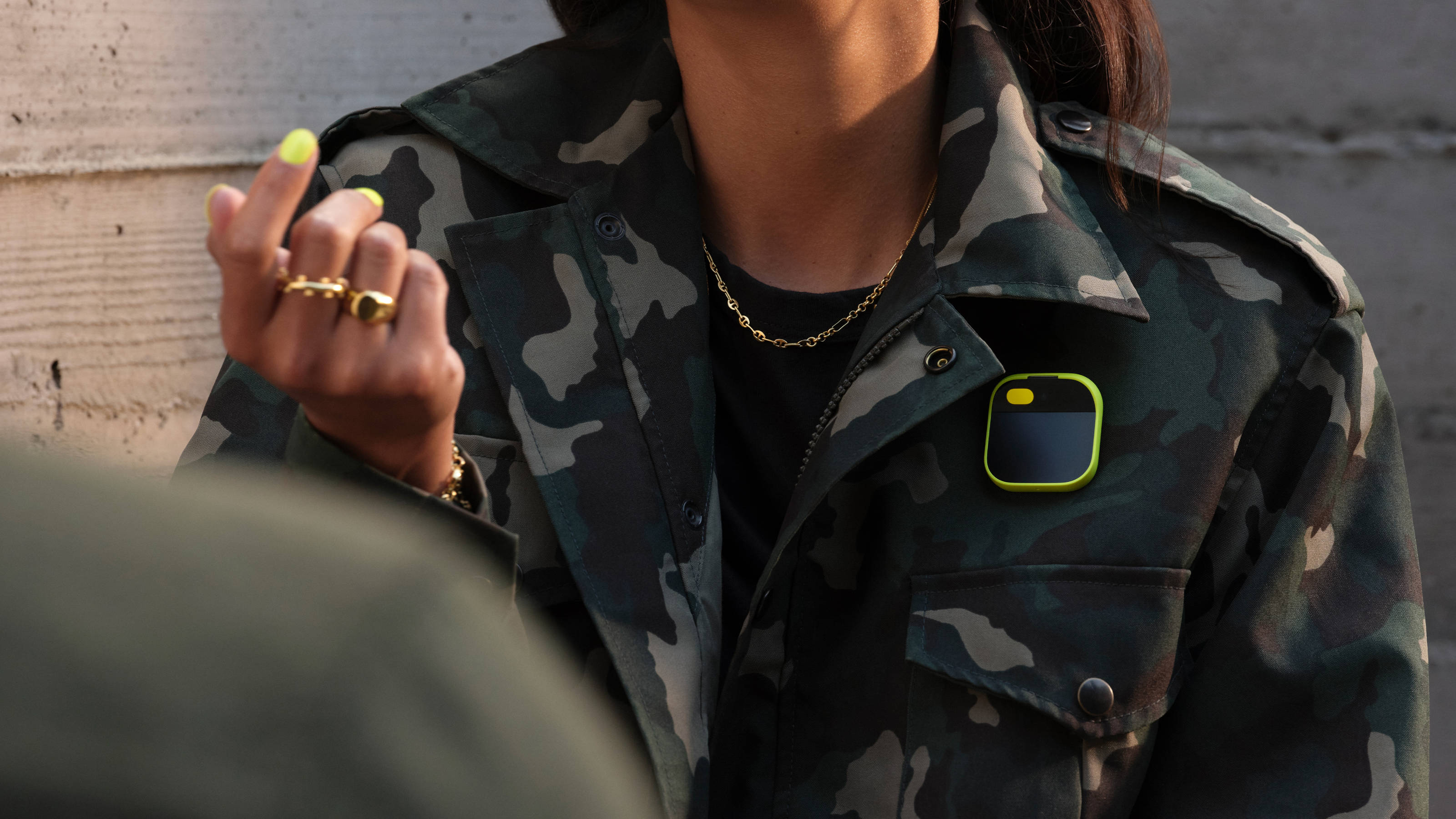
Humane's Ai Pin attaches to clothing
‘Pin’ is something of a misnomer, as the tech itself is a chunky badge, resembling a shrunken pair of bathroom scales that uses a magnetic catch to clip onto your clothing. Think of it as a personal digital assistant that has been shrunk to near invisibility, with sophisticated contextual software that ‘elevates your interactions with the world around you’.
In practice, this means interacting with the Ai Pin through speech and the touchpad that dominates the front surface. The device also incorporates an ultra-wide camera, depth and motion sensors, along with a ‘personic’ speaker designed to create a ‘bubble of sound’ – Bluetooth headphone connectivity is also available. All this is powered by a Snapdragon processor running Humane’s new Cosmos operating system.
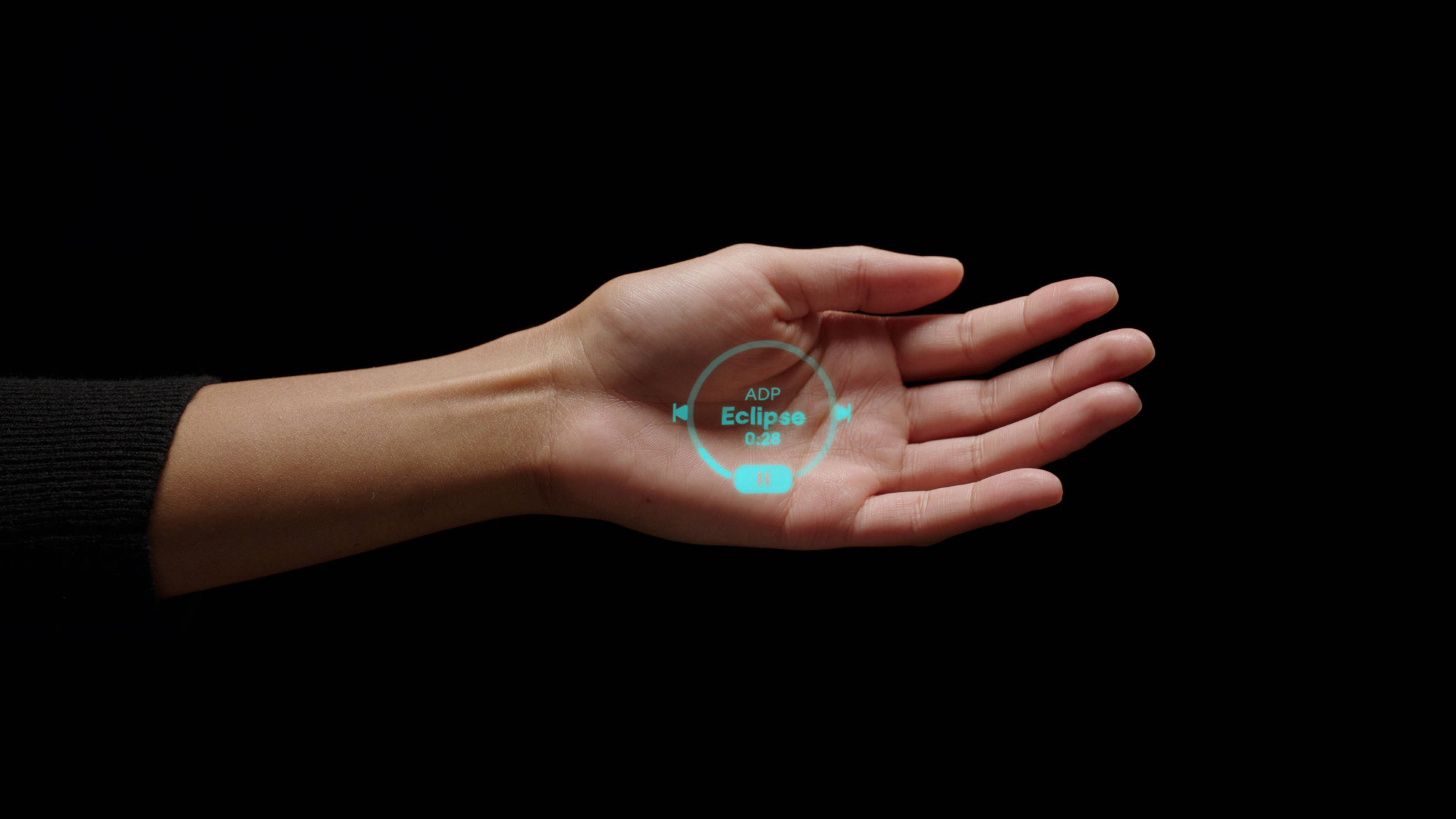
The Ai Pin projects information onto your hand
Aside from speech and touch, the other interaction is via Humane’s Laser Ink Display, a projection system that uses your palm as a screen. How does Humane envisage the Ai Pin working? Many of the functions are intended to operate seamlessly in the background, such as voice search, translation, and even a tool that visually analyses your food to help with your nutrition.
Overall control and data management is undertaken via the Humane.center hub, and the company stresses that privacy is paramount in its strategy, with no always-on function awaiting a ‘wake word’ and a light showing when the device is active. A couple of decades into the smartphone era, and the sages of Silicon Valley are thinking hard as to the shape and form of the next multi-trillion-dollar personal technology. The idea of a portable, personal AI assistant that doesn’t need to be tethered to a smartphone might be someone’s idea of freedom. What will make or break the Ai Pin, however, is how seamless that experience will be.
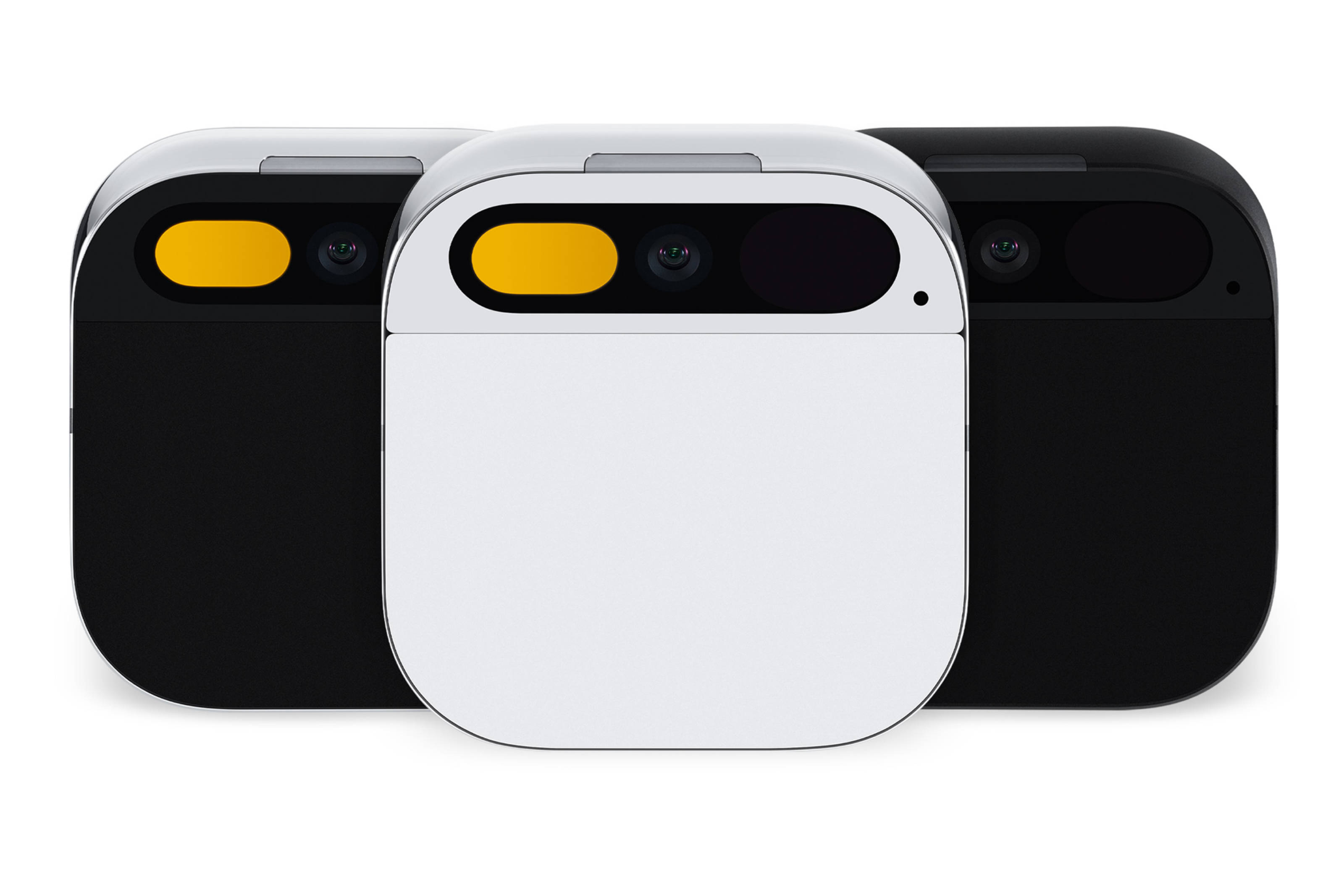
The Ai Pin is available in three colours
The past year or so has been dominated by AI, and the way it threatens to redraw our definition of creativity, be it in product design, photography, car design, or architecture and writing itself. Humane has skipped the question of AI-enhanced creativity and gone straight to seeing the tech as a silent, near invisible partner for everyday uses.
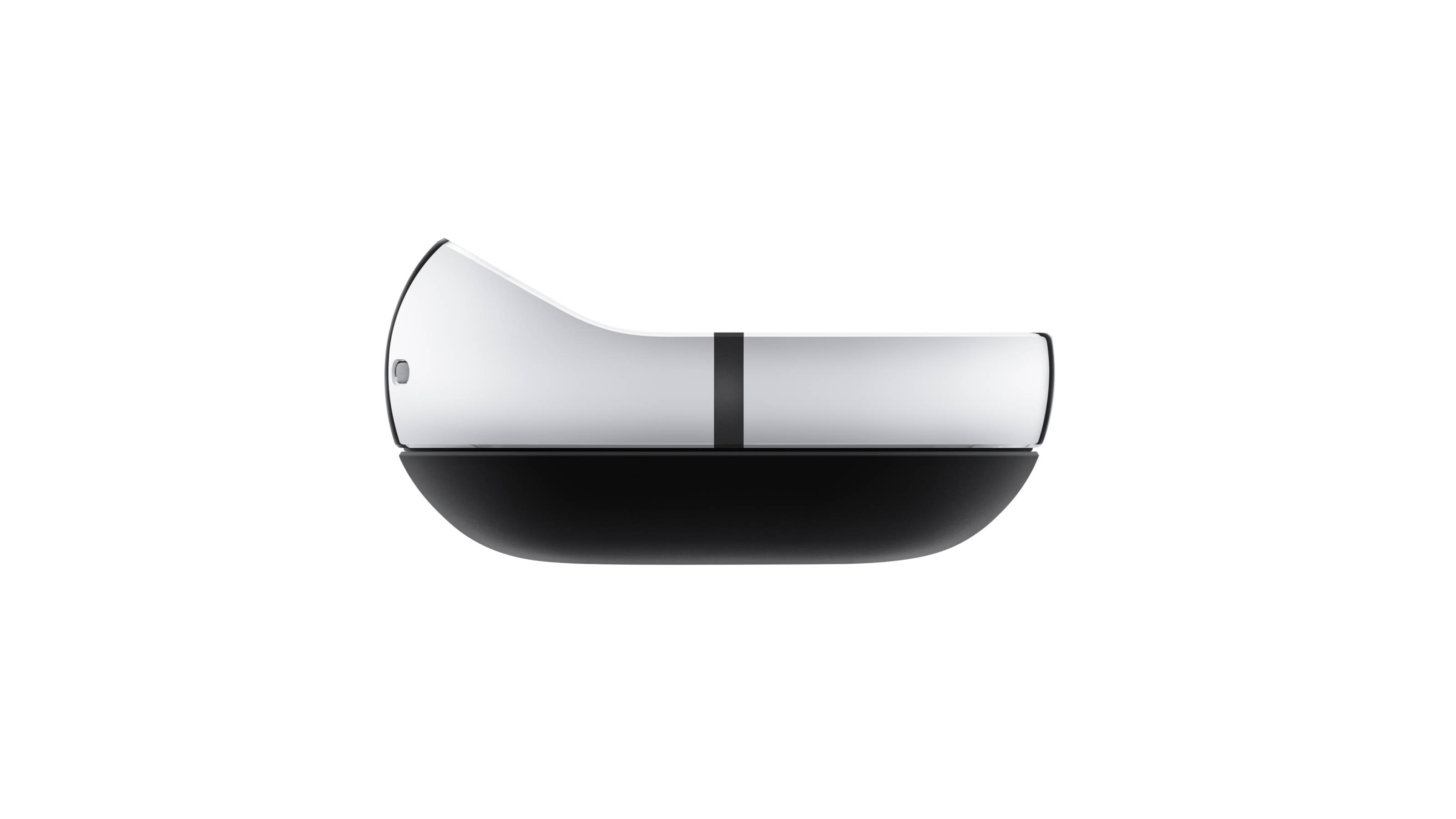
The Ai Pin is slender and has a separate battery booster pack
The Californian company was founded in 2019 by Imran Chaudhri and Bethany Bongiorno, both of whom previously worked at Apple. The journey to the Ai Pin has taken several years, as the team scratch-built a software and hardware platform that was robust, flexible and sufficiently small to represent a real step away from the smartphone. Collaborators include TIDAL, OpenAI, Microsoft and T-Mobile – it’ll be the last’s network that powers the first devices.
Receive our daily digest of inspiration, escapism and design stories from around the world direct to your inbox.
Initially, it could well be the world of work that benefits most from integrating the Ai Pin into existing systems, with the hands-off nature of a camera-enabled device promising a functionality akin to Google’s Glass experiment. Now that AI has infiltrated our smartphones and underpins substantial swathes of the nebulous relationship we have with digital assistants, telephone banking, and many, many other human-machine interfaces, is making it even less visible the way forward?

The Ai Pin ships with a separate chargepad
’The first Humane device will allow people to bring AI with them everywhere,’ Chaudhri said earlier this year, and the company is committing itself to ‘a future where AI seamlessly integrates into every aspect of our lives and enhances our daily experiences’. Is it a future based on wants or needs?
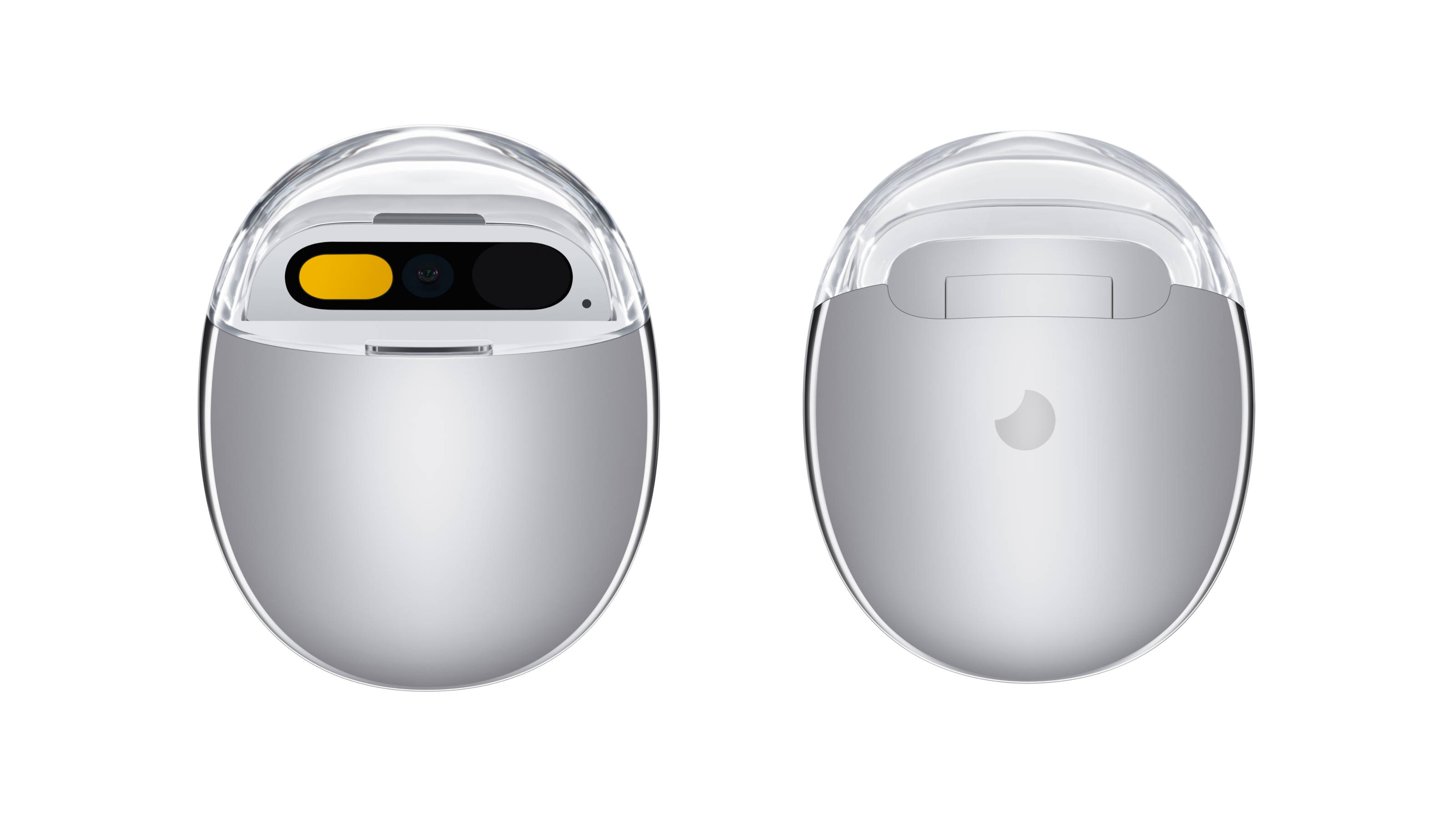
The Humane Ai Pin in its charge case
Ai Pin is available in three colours, Eclipse, Equinox, and Lunar. The system will be available in the US from November 2023 and starts at $699 with a monthly subscription of $24, including the device, two battery boosters, charge pad, charge case, cloud storage, cable and adapter. For more information, visit Hu.ma.ne
Jonathan Bell has written for Wallpaper* magazine since 1999, covering everything from architecture and transport design to books, tech and graphic design. He is now the magazine’s Transport and Technology Editor. Jonathan has written and edited 15 books, including Concept Car Design, 21st Century House, and The New Modern House. He is also the host of Wallpaper’s first podcast.
-
 The Bombardier Global 8000 flies faster and higher to make the most of your time in the air
The Bombardier Global 8000 flies faster and higher to make the most of your time in the airA wellness machine with wings: Bombardier’s new Global 8000 isn’t quite a spa in the sky, but the Canadian manufacturer reckons its flagship business jet will give your health a boost
-
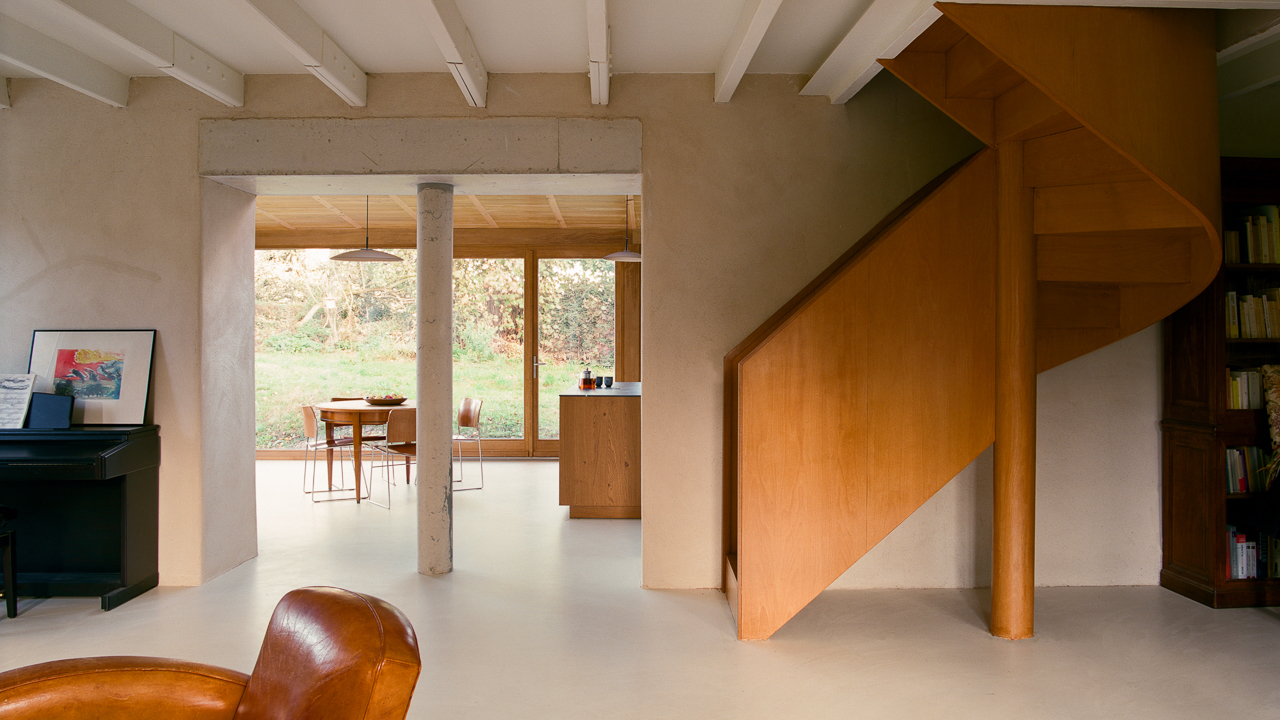 A former fisherman’s cottage in Brittany is transformed by a new timber extension
A former fisherman’s cottage in Brittany is transformed by a new timber extensionParis-based architects A-platz have woven new elements into the stone fabric of this traditional Breton cottage
-
 New York's members-only boom shows no sign of stopping – and it's about to get even more niche
New York's members-only boom shows no sign of stopping – and it's about to get even more nicheFrom bathing clubs to listening bars, gatekeeping is back in a big way. Here's what's driving the wave of exclusivity
-
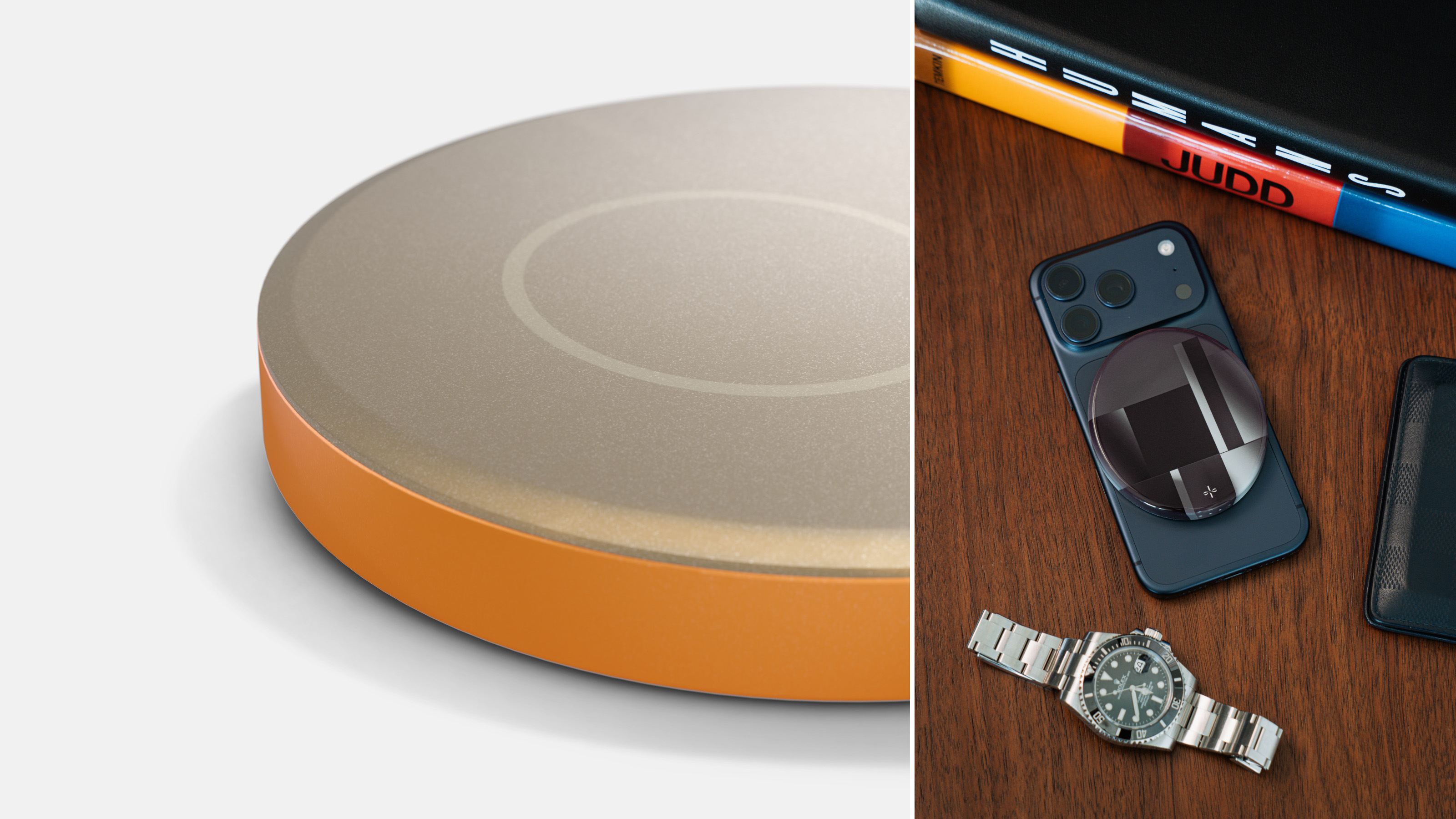 Inspired by a pebble, the stylish new Alma charger provides pocketable convenience
Inspired by a pebble, the stylish new Alma charger provides pocketable convenienceWhat if technology could quietly allay anxiety and not cause it? That’s the pitch behind new luxury accessories company Addition, starting with its new Alma wireless charger
-
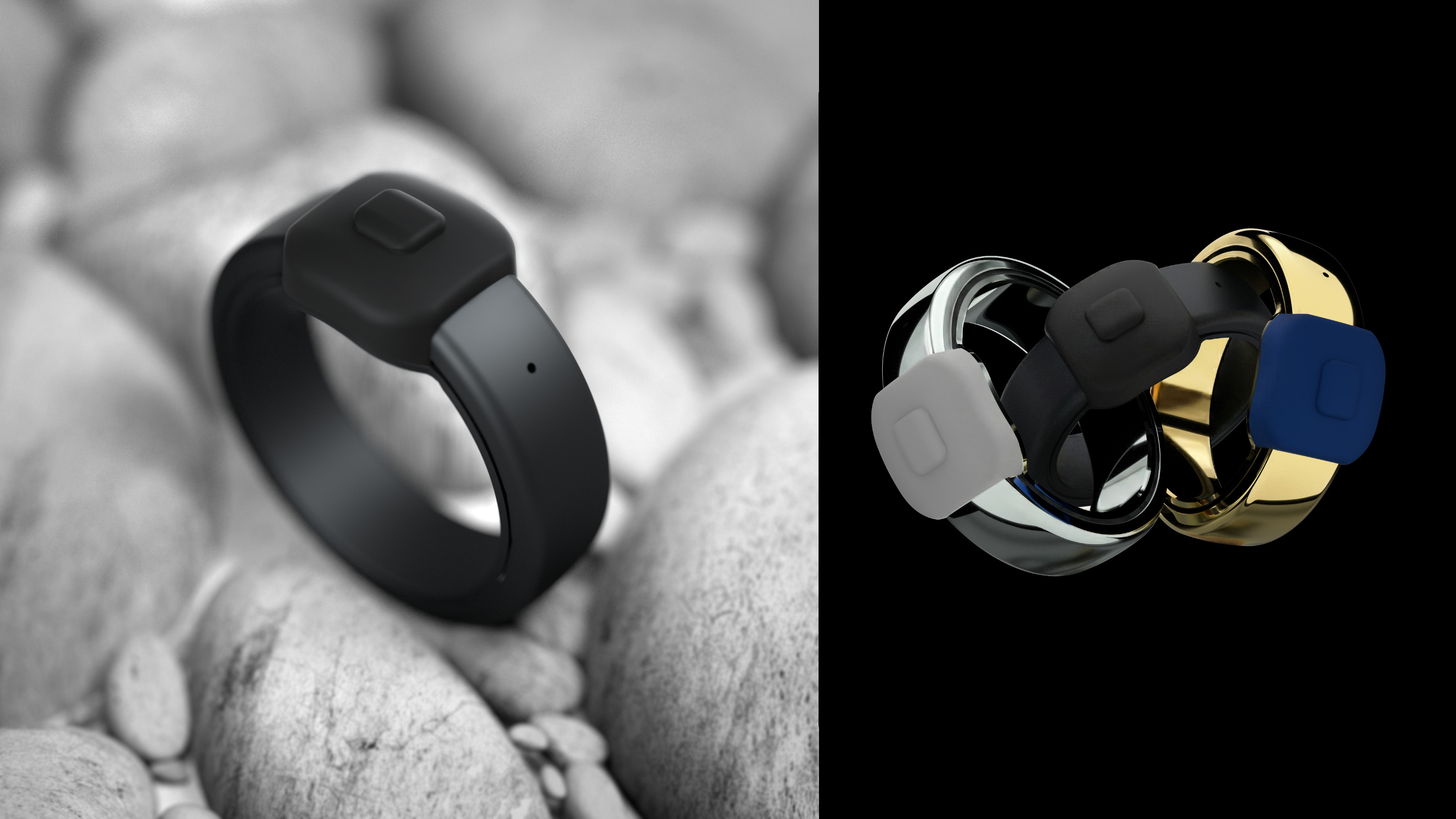 The ring’s the thing as Pebble launches a discreet device for memo-taking, Index Ring 01
The ring’s the thing as Pebble launches a discreet device for memo-taking, Index Ring 01A tiny device with a singular purpose but limitless applications, the Pebble Index 01 is a customisable smart ring for turning mental notes into text
-
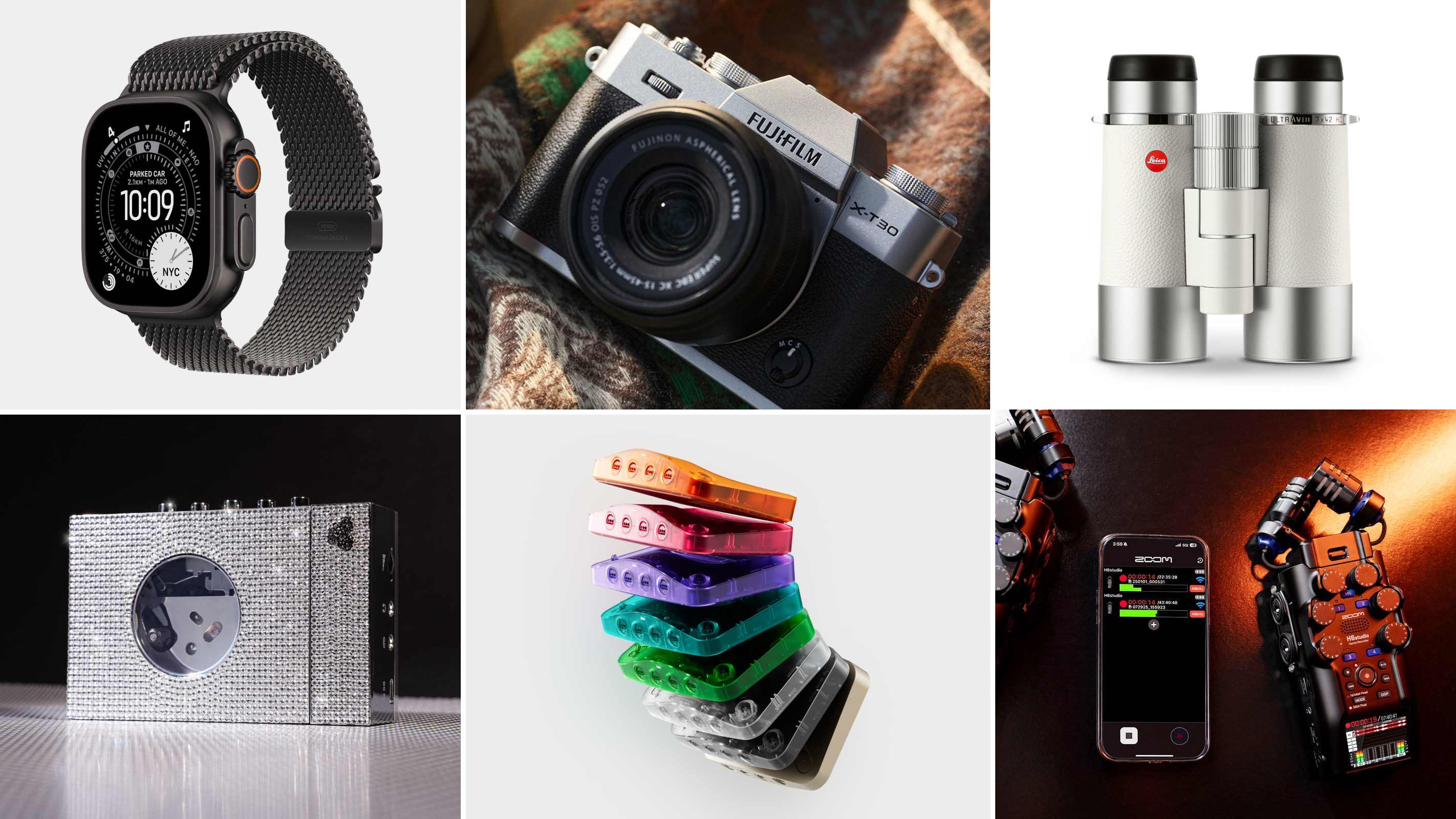 Tech gift ideas: Wallpaper’s Jonathan Bell lists 12 devices to desire this festive season
Tech gift ideas: Wallpaper’s Jonathan Bell lists 12 devices to desire this festive seasonTechnology editor Jonathan Bell delves into the best new releases and most giftable gadgets from 2025, offering up personal favourites as well as a few big hints
-
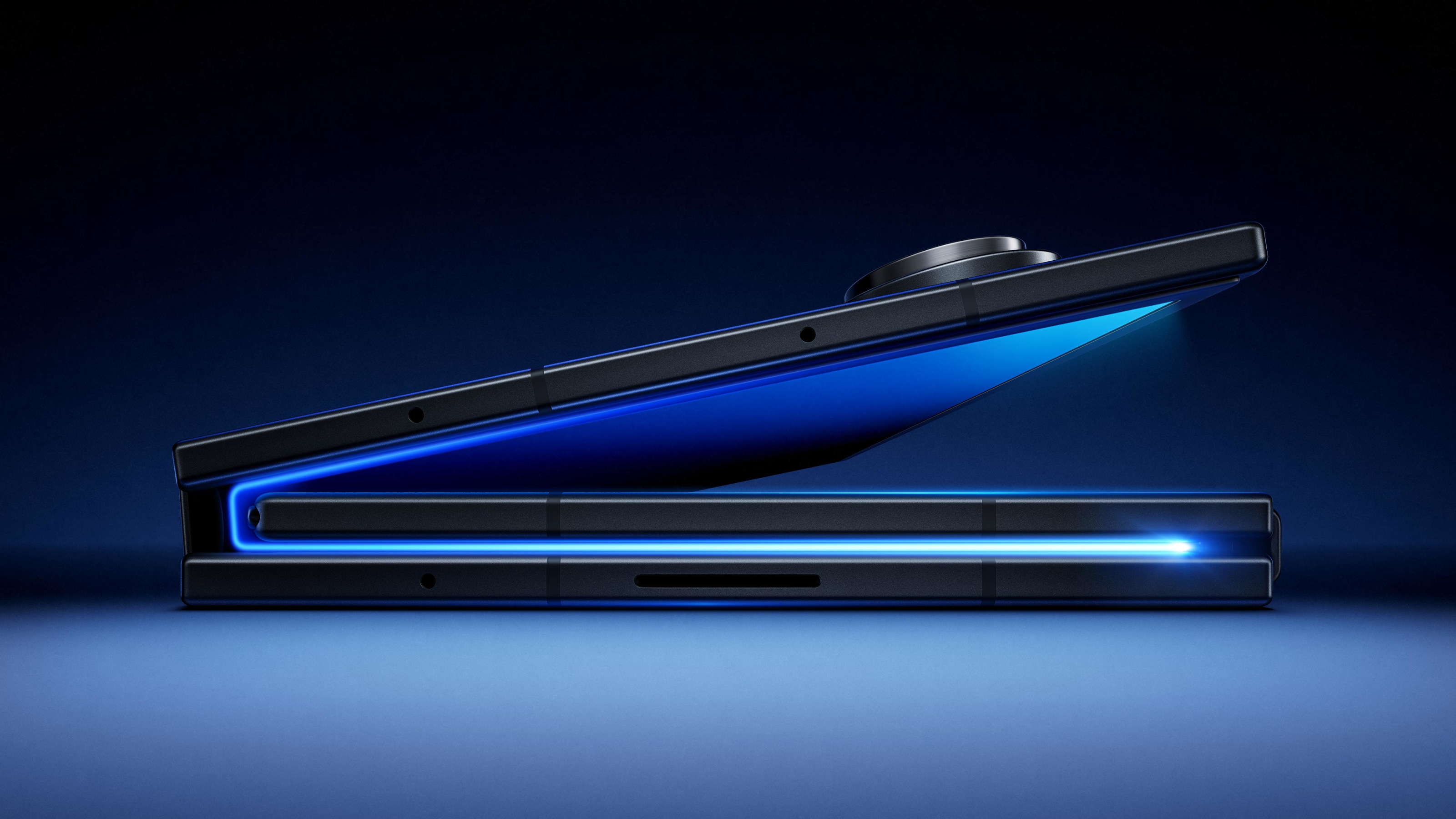 Samsung Galaxy Z TriFold is a pocket tablet that takes folding screens to new extremes
Samsung Galaxy Z TriFold is a pocket tablet that takes folding screens to new extremesSamsung has announced its newest flagship device, the Galaxy Z TriFold. Featuring three folding screens, this ultimate smartphone can transform into a ten-inch tablet
-
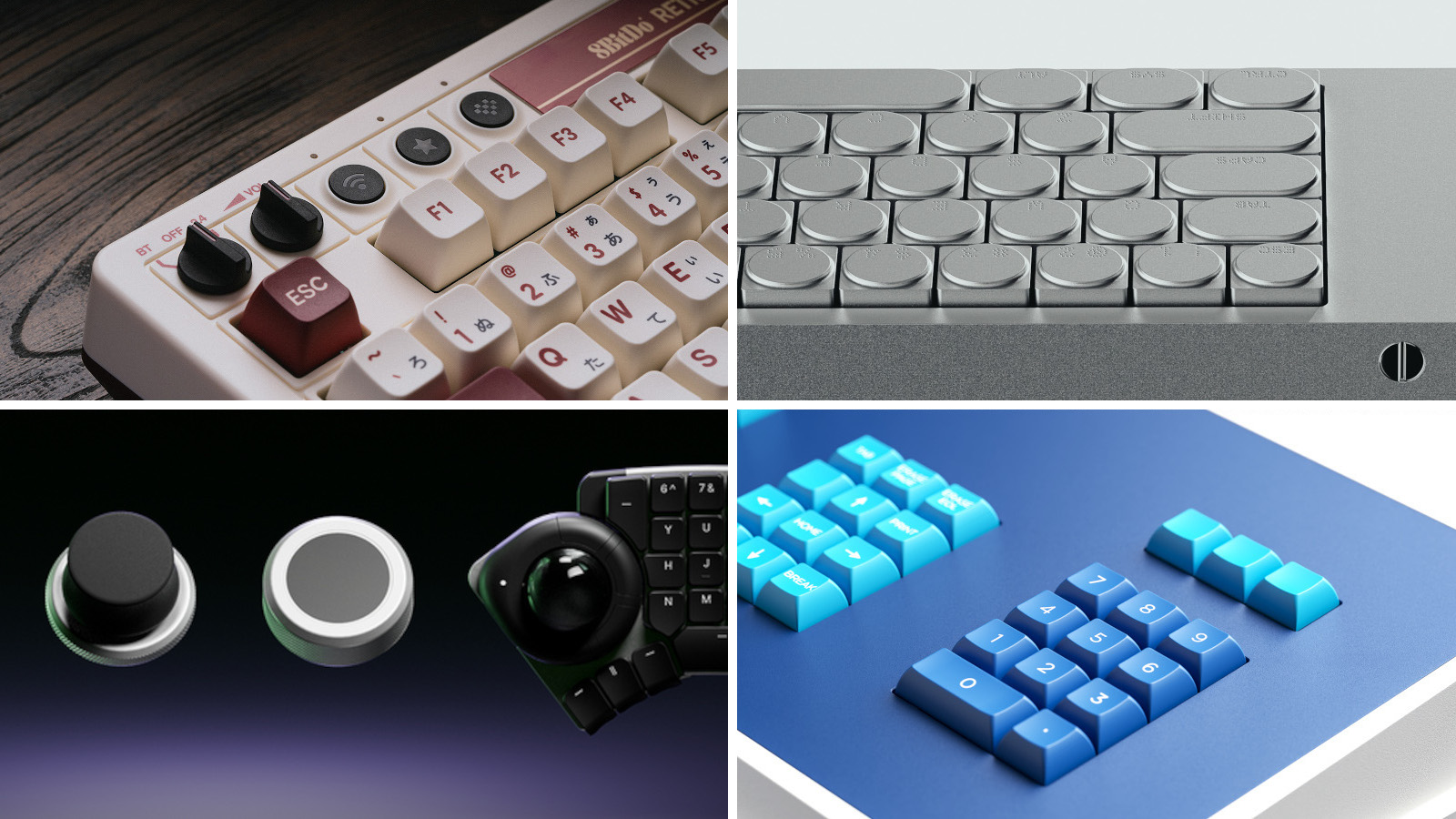 Four new keyboards are fresh and functional desktop companions
Four new keyboards are fresh and functional desktop companionsMechanical keyboards are all the rage, bringing with them new ways of personalising your desktop. We’ve found four devices that hark back to the early days of computing
-
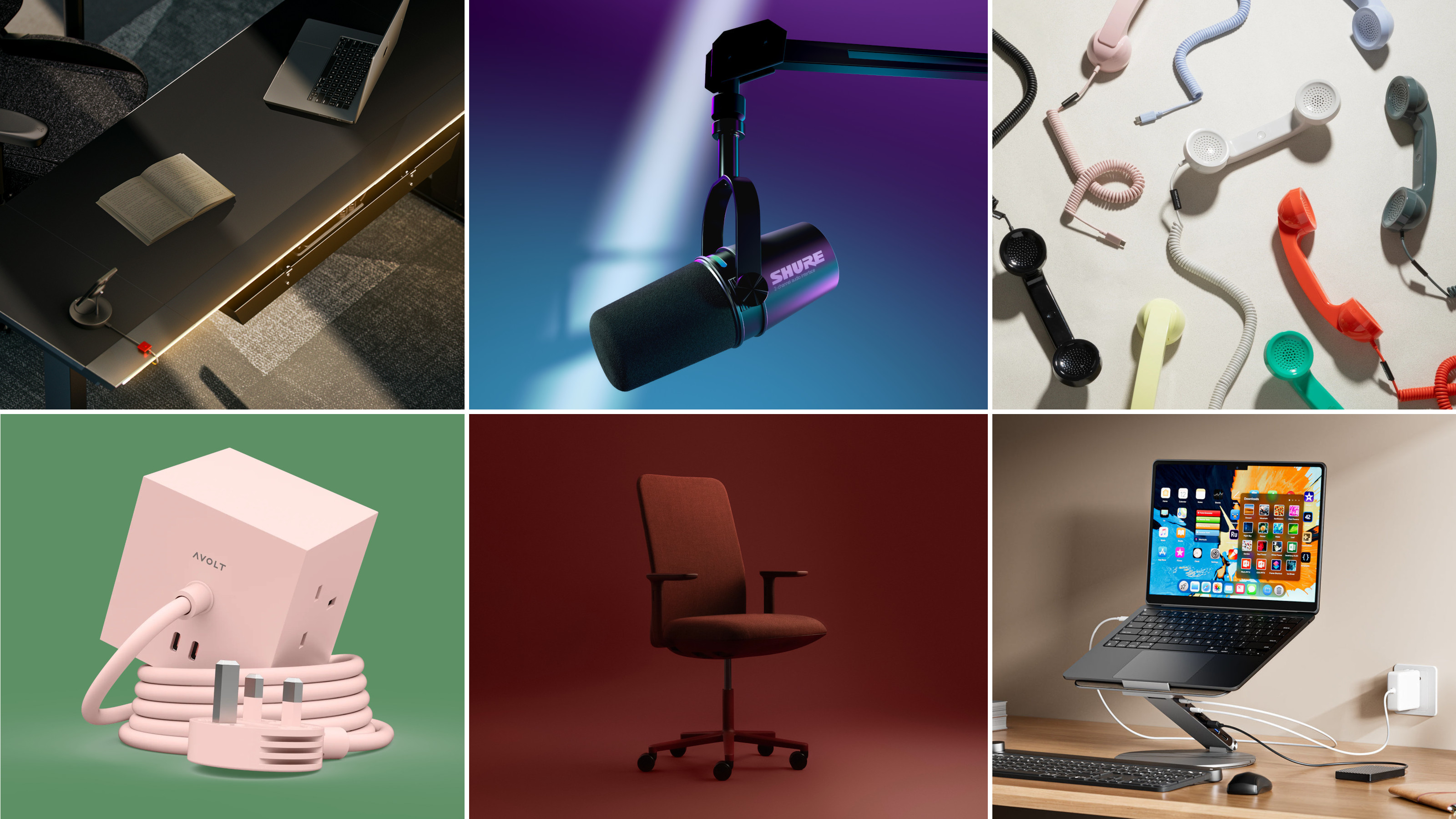 Hunker down in a perfectly equipped work-from-home hub this winter
Hunker down in a perfectly equipped work-from-home hub this winterIf your WFH set-up needs an upgrade, or if you need to kit out a new small business from scratch, we’ve got you covered
-
 New Leica Q3 Monochrom camera sees the world in black and white
New Leica Q3 Monochrom camera sees the world in black and whiteDefined by its crisp 60MP monochrome sensor, the Leica Q3 Monochrom is a camera designed for those who want to focus only on light, shadow and form
-
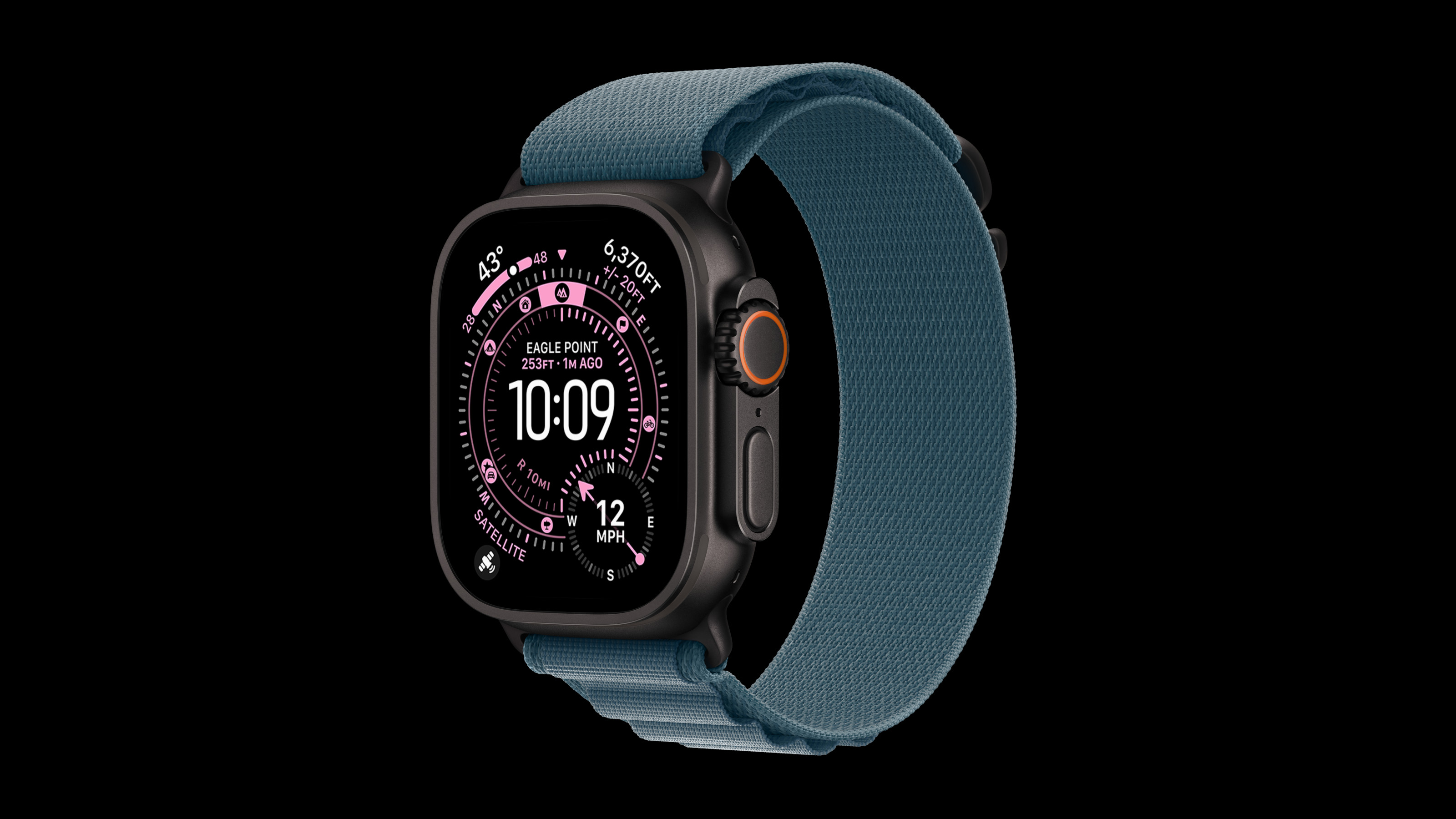 Apple Watch Ultra 3 has innovation at its heart – a 3D-printed titanium case
Apple Watch Ultra 3 has innovation at its heart – a 3D-printed titanium caseWe delve into Apple’s pioneering use of 3D-printed metal, and how it ties in with the company’s path to carbon neutrality